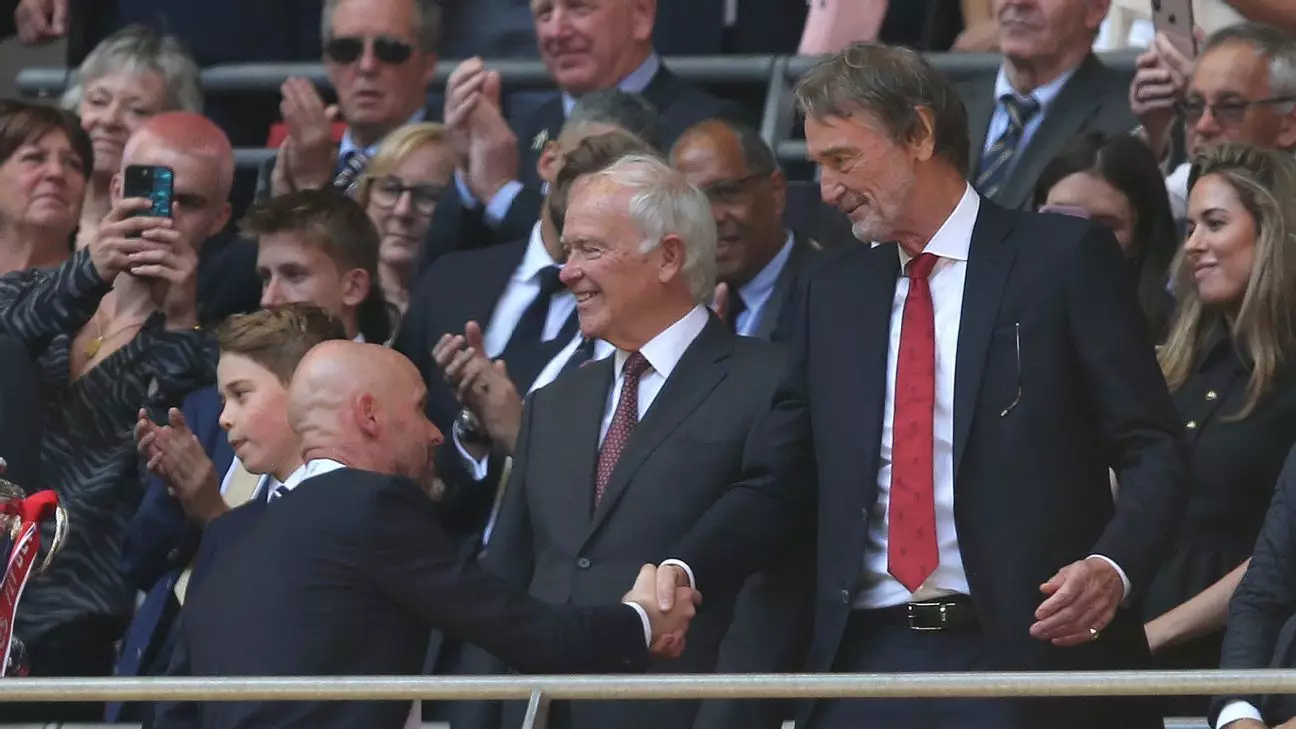In the ever-evolving landscape of football management, few scenarios are as intense and fraught with pressure as the relationship between a club’s ownership and its head coach. At Manchester United, this dilemma is palpable as co-owner Sir Jim Ratcliffe finds himself navigating a turbulent situation concerning manager Erik ten Hag. With the team currently succumbing to a four-match winless streak, questions loom regarding Ten Hag’s job security, especially in light of Ratcliffe’s recent remarks.
Ratcliffe’s reluctance to offer staunch support for Ten Hag has raised eyebrows among fans and analysts alike. When pressed about his faith in the Dutch manager, Ratcliffe’s response was notably ambiguous: “I don’t want to answer that question.” This stance could indicate deeper issues within the club’s leadership structure, as it suggests that key decisions regarding the coaching staff are being left to a management team still in its infancy. Such a lack of clear endorsement from ownership can further exacerbate the instability around the team and its manager, who are both keenly aware of the critical stakes involved.
Since Ratcliffe’s acquisition of a 27.7% stake in Manchester United earlier this year, the club has undergone a significant restructuring. The appointments of Omar Berrada as CEO and the addition of Dan Ashworth and Jason Wilcox as sporting and technical directors reflect a shift toward a more cohesive operational framework. However, Ratcliffe’s emphasis on the management team’s relative inexperience raises questions about their capacity to evaluate Ten Hag’s performance comprehensively and make informed decisions that could stabilize the club. The disparity between the club’s ambitions and its present performance is stark; Ratcliffe himself acknowledges that Manchester United is not where it should be.
Although Ten Hag’s contract was extended this past summer, the context surrounding this decision adds another layer of complexity. Berrada and Ashworth have publicly distanced themselves from the extension, suggesting a disconnect in the leadership’s vision. This contract extension, made before the new management team assumed their roles, creates a precarious situation where the current leadership may not feel fully invested in the decisions made by their predecessors. The lack of a cohesive strategy could lead to a precarious cliff for Ten Hag as he faces an essential fixture against Aston Villa, where failure to secure a victory might lead to severe repercussions.
As Manchester United prepares for a crucial match, its supporters are left grappling with uncertainty regarding the managerial position. Ratcliffe’s statements reflect a broader issue of alignment within the organization, wherein the need for urgent yet thoughtful decision-making is critical to restoring stability. The upcoming weeks will be decisive; not only will they determine the fate of Ten Hag, but they may also shape the future direction of Manchester United as it seeks to reclaim its status among football’s elite. The club’s ambition, as articulated by Ratcliffe, is clear: a return to preeminence, but achieving that goal may hinge on the vital choices that its management team must make now.


Leave a Reply